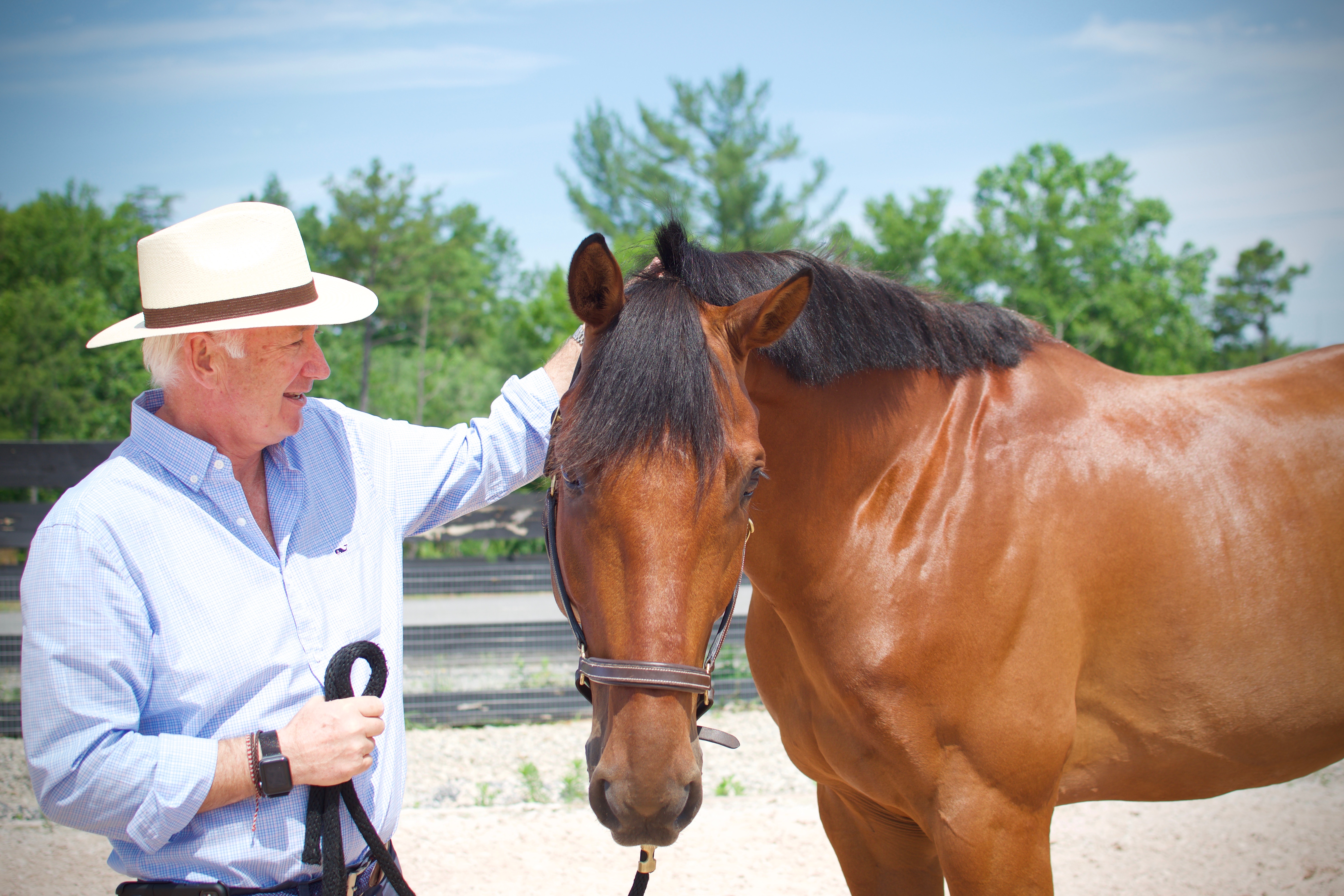Largest US horse airlift ahead of World Equestrian Games
30 / 08 / 2018

Greenville-Spartanburg International Airport (GSP), a relatively small air hub in the northwest corner of South Carolina becomes the focal point this weekend as what is believed to be the largest-ever airlift of horses into the US gets underway.
On Sunday, afternoon, the first of 20 chartered Emirates freighters will bring 75 horses bound for the nearby World Equestrian Games, set for September 10-23 at the Tryon International Equestrian Center in Tryon.
Sunday’s flight from Liege, Belgium, will be the first of 20 that will bring in a total of 550 horses over several days. After Sunday, subsequent flights will carry 35 to 50 horses each.
In addition, the Dubai Royal Air Wing, which has its own private horse transporter, will ship eight horses from the UAE to GSP on September. 6.
Also arriving in Tryon this weekend will be another 75 horses from South America. These horses were flown into Miami International Airport this week from several countries and have been undergoing quarantine. They will be transported by truck from Miami to Tryon.
“Everything is done and we are all ready to go,” says Michael Stone, president of Equestrian Sport Productions, organiser of the WEG. “We would like for the weather to cool down,” referring to the region’s recent mugginess.
Stone says the only comparable equine airlift into the US came in 2010 when about 440 horses were flown to the WEG in 2010, held in Lexington.
Serving as the entry point for the equine participants in the WEG is a big deal for GSP, which only began regularly handling cargo in 2011.
Dave Edwards, the airport’s president and chief executive, says his team is ready for the horse invasion.
The airport has been working with the WEG for several months in order to make sure the arrival go smoothly.
“Logistics planning has been excellent and GSP has been fantastic to work with,” Stone says. “They have bent over backwards to make it work.”
Peden Bloodstock, a Germany-based horse logistics specialist, has arranged the Emirates charters, all to be made on Boeing 777 freighters. GSP cargo staff will serve as cargo handlers for the horses once they arrive.
Martin Atock, Peden’s managing director, has traveled to Tryon and GSP several times in preparation for the event.
He praises GSP staff and other regional officials, noting that their helpfulness will be a contributing factor to the event’s success.
Emirates is one of the world’s leading carriers of horses, transporting about 1,000 annually.
Wilfred D’Souza, Emirates’ manager of cargo scheduling and planning says it’s all about the comfort and safety of the horses.
“We need to make sure that the horses are not fatigued because of the journey and arrive after a comfortable and quick journey ready to hit the ground running,” D’Souza says.
Atock says the vast majority of horses competing in the WEG are based in Belgium, the Netherlands, Germany, and France, so Liege is “enormously convenient.” Flights to GSP from Liege take about seven hours and 20 minutes.
Horses must be kept well hydrated during the flight, and air circulation has to be just right.
During the flight, horses are given water and hay. Grooms check on the horses every two hours to make sure everything is going well.
Likewise, with the plane’s descent, pilots take it gently with no sharp turns to avoid upsetting their equine passengers. Two of Peden’s flying grooms travel with the horses.
“They know all the procedures and are there to protect the integrity of the whole flight,” Atock says.
“Once the horses are all in there, you are in good shape if they are all happy, passive travelers.
“Movement is the next crucial thing, and flight crews are enormously experienced. They start very gently, and if there is a turn on the runway, they will move to the right so the horses can adjust their balance.
“Once they are on the runway, they don’t go tearing down at full throttle. These pilots use the whole runway and gently ascend up to cruising altitude so the horses don’t lose their balance.”
After flights land at GSP, horses will be scissor lifted out of the planes while under quarantine conditions and lowered to a walking bridge connecting directly to trucks, which will transfer them to Tryon, where they will undergo 36 hours of quarantine. Before they leave GSP, blood is drawn from each horse.
A special courier then flies with the samples to the USDA testing lab in Ames, Iowa, where the blood is immediately tested for diseases.
For GSP, the equestrian event is an opportunity to showcase its capabilities to the airfreight world.
Edwards says equine transport is a sector the airport could develop in the coming years, perhaps establishing itself as a gateway for horses entering the US.
“First, we need to prove we can do this well through the games. We hope it will create more opportunities going forward.”
Dave Edwards, president and chief executive, GSP. Photo courtesy of GSP

Read more animal transportation news
Click here for a free digital subscription













